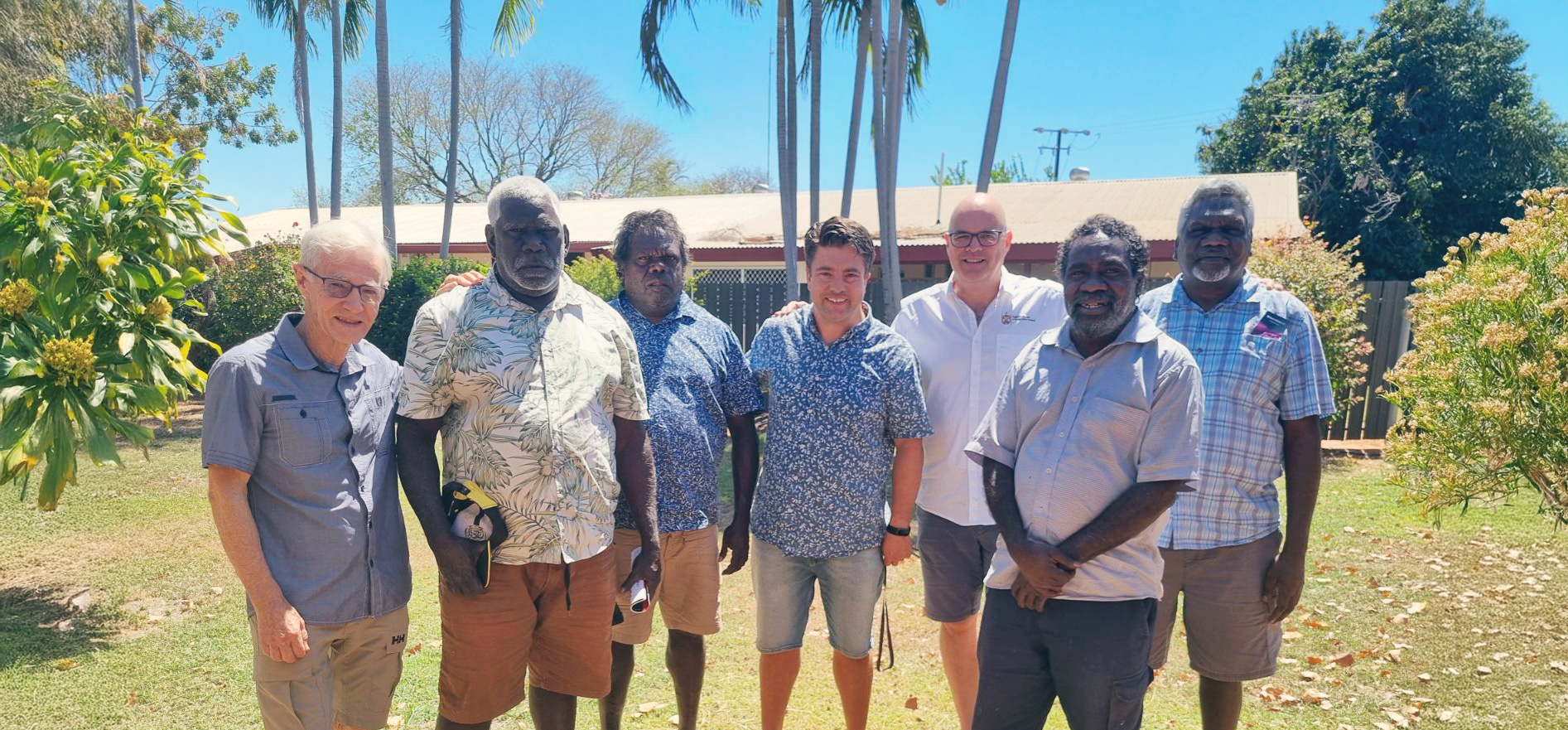When difference gets me down
Ex-CMS missionary Greg Anderson is now bishop of the Northern Territory. In this, the last of six articles on humility in mission, Greg writes about dealing well with the difficulties and tensions of coming to serve from a position of privilege.
Article One is Skin-deep mission: how Western missionaries are perceived.
Article Two is The Money Factor: Relatively Rich Mission Agents.
Article Three is The Politeness Factor: Relatively Rude Mission Agents.
Article Four is The Lifestyle Factor: Relatively Free Mission Agents.
Article Five is The Diversity Factor: Relating to a Range of People.
You are currently viewing Article Six—When Difference gets me down.
When I was teaching at Moore Theological College, I would say to stressed students at exam time that every moment they were not rocking in a foetal position on the floor was a moment to be thankful to God that they were not rocking in a foetal position on the floor. And perhaps rocking in a foetal position can be very helpful and therapeutic in certain circumstances and is not to be made fun of!
In this series of articles I have been exploring some of the challenges of being Western missionaries, having a place-in-the-world that is affected by realities and perceptions that the missionary has no control over. The reality of mission history (and even of much contemporary mission practice by those from the West) is that missionaries have typically come from positions of power and relative wealth, although they may rarely feel that they have power in the cross-cultural situations they are in and they may wish themselves out of the demands and/or guilt that result from relative wealth. Perceptions of Westerners by non-Westerners (or in a parallel way, Australians by non-Australians, as is the case in many of CMS’s field locations in Western countries) might well be masked and even subconscious, but they are drawn from experiences that the missionary may not be aware of, and might have nothing to do with.
The vulnerability of the privileged missionary
This makes the missionary very vulnerable. The tension between the perception that others have of us and what we perceive ourselves to be can leave us with foetal-rocking confusion, stress, anger or despair. I find myself wondering if missionaries who don’t feel this have only been in place a short time, or such a long time that they really have come to terms with it. I suspect that the middle ground between those ends is very large.
In the Northern Territory, there is quite a lot written about the history of contact between missionaries and Aboriginal people. Of course written history comes with the writer’s own perspective, whether explicit or not, but by comparing and sifting, much can be learnt about the past that continues to shape the present. Christianity came to this region through missionaries who on the whole (with the exception of an Italian priest on the Coburg Peninsula in the 1840s! – see this article about northern Australia’s first missionary priest ) sought to establish settled non-nomadic communities as part of their mission strategy, and laid out their own rules and values on those communities (eg opposition to nakedness, opposition to polygamy, introduction of many Western foods).
This had many more social effects than the missionaries might have anticipated, and these effects live on strongly in the places that are successors to those mission stations. These, along with other factors, wield great influence on the cross-cultural encounter. The situation is very different in different parts of the world, but often enough, the legacy of perceptions about the West, about Christianity and about the church is a factor that will affect the way people relate to missionaries and their ministries.
Three suggestions for dealing well with missionary challenges
So how am I to deal with these significant challenges in a way that God uses to increase my service and sustainability? I make three suggestions.
1. Acknowledge the tension
First, recognise and acknowledge the tension that exists between the way I see myself and want to be seen by others, and the way others see me because of where I come from or what I represent.
An area that I often think about are the perceptions in Middle Eastern countries about the ‘Christian’ West. I imagine that as local people get to meet Western missionaries, they are eventually going to discover that some of the stereotypes that have been developed and nurtured about the West are not expressed in these people that they come to know. But there has to be a lot of stereotype destruction before genuine open relationships can build. It doesn’t serve us to pretend things aren’t as they are.
Stereotypes of Westerners (or Australians) are not our fault, but we will wear them at least for a while. It takes time for people to get to know us, and we need to be patient with ourselves and them as that happens. It doesn’t serve us to blame others, but it doesn’t hurt to recognise that sometimes we have tension within ourselves because of others’ prejudices. Patience is not easy, but it is a better alternative than giving up altogether.
2. Find the right person to help you
Second, find an honest cultural broker, if at all possible. Such people are probably rare, and are not likely to be discovered straight away. It can take courage for local people to be honest with the missionary who embodies the relatively powerful West, especially when the local wants to be critical, but those who are prepared to tell it like it is are incredibly valuable. In places where such people seem non-existent, there might be other ways of getting similar information – maybe by asking questions about Westerners in other places, or reflecting with locals about Western material on youtube or television or magazines, where these are available. Again, building up the kind of relationship where honesty flourishes takes time and patience.
3. Make the implicit explicit
Third, look for ways of bringing what is implicit out into the open. Are powerful Westerners so expected to be rude, for example, that nobody mentions it because it is not newsworthy? Is there resentment about the apparent ability of the missionaries to go on holidays most years? Again, there is nothing easy about this strategy, and the missionary can spend time learning about local ways of discussing potentially sensitive information—because there are bound to be some. If we can find honest cultural brokers, they will be a good starting point for making explicit what is hidden; but if more people can be brought into the story, especially those who have the most contact with the missionaries, the benefit will be even greater.
A final word
These tensions can be overwhelming – and God knows about them. He invites us to throw our anxieties on to him, which is a good place to start, and end, and everywhere in between. We can trust him to sustain us in the mission that he has called us into.












































































































